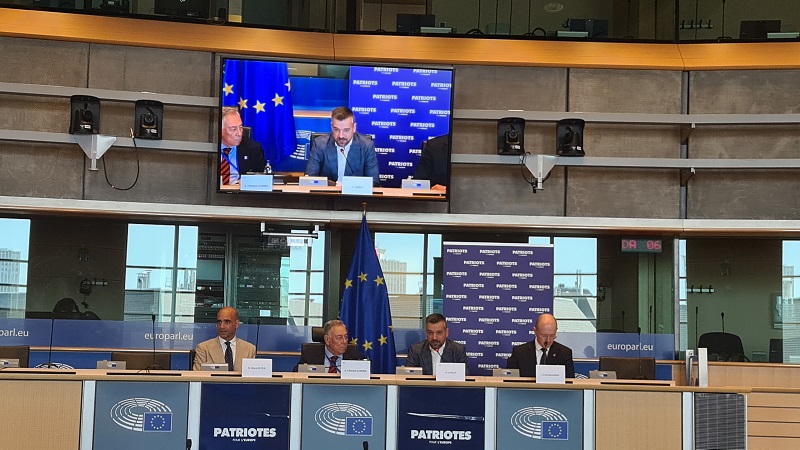By Jeroen Zandberg
Brussels, 11 June 2025
A conference at the European Parliament focused on an important issue: What institutional shape must the European Union take in response to declining legitimacy and growing dissent in Member States? With the suggestive title “The Great Reset: Restoring Member State Sovereignty in the European Union”, the conference gathered politicians, legal experts, and policy makers under the banner of a controversial call for a re-made, or even re-founded, EU based on national sovereignty.
Speakers, including A. Laszlo, Jerzy Kwaśniewski, and Rodrigo Ballester, offered a diagnosis of Europe’s problems: democratic deficit, EU institutional overreach, subsidiarity erosion, and growing ideological control. Their proposed solutions ranged from a strengthening of the Council and a curtailment of the Commission’s and Parliament’s role, to the abolition of the EU and its replacement with a new European Community of Nations.
A neglected voice: Europe’s National Minorities
Amidst the technical and sometimes esoteric argument over sovereignty, institutional balance, and treaty revision, one contribution brought back into focus those least listened to in the halls of Brussels: Europe’s national minorities.
In the Q&A session, I posed the following question to the panelists: What would the position of national minorities be in this idealized Europe following a Great Reset? Using the example of the Frisian nation, which is a recognized national minority in the Netherlands and in Germany, I pointed out that even though national, EU and Council of Europe principles officially safeguard their rights, practice shows that such protection vanishes the moment minority identity gets in the way of state efficiency, centralization and control.
I provided the recent case of an East Frisian municipality in Germany where the Frisian language was removed from the digital systems of the local administration during a modernization campaign, which went online in February 2024. The former bilingual site became professionalized, offering many public services, but without the Frisian language. This digital change was presented as value-neutral but was actually excluding a minority language and identity under the pretext of greater efficiency and improved service delivery.
The panel’s reaction was serious. Rodrigo Ballester and Jerzy Kwaśniewski stated that the policy of national minorities should be left to Member States alone. “European Parliamentarians only know LGBT as minorities; they don’t know the Frisians.” according to one panelist. Mr. Ballester further added that “national minorities have nothing to expect from the EU,” referring to the 2021 European Commission rejection of the Minority SafePack Initiative (MSPI) despite over one million signatures collected across the Union.

National Sovereignty or National Blindness?
Although the speakers emphasized subsidiarity and national sovereignty, the answers disclosed a deeper problem: nation-states prefer to ignore minority communities when these communities pose real political threats. Subsidiarity would in theory protect local cultures and languages. In practice, it can give governments the power to erase them without oversight.
The authors of the Great Reset imagine a Europe of nation-states voluntarily cooperating—but in this idealized world, national minorities appear to disappear unless their presence is geopolitically convenient. Support to national minorities is given when it is harmless or useful in a greater political game. The instant minority populations start to seriously organize, calling for digital inclusion, linguistic rights, or institutional voice, then they are ignored, marginalized or undermined.
This raises a basic question: If a new Europe in the future is to be rebuilt on the platform of national sovereignty, what assurances will there be that national minorities will not become the victims on the altar of centralized nation-state power? An arrangement of sovereign states that cannot tolerate cultural pluralism may reproduce the same democratic deficits that it aims to remedy.
Conclusion
The Great Reset conference promoted a helpful debate on the institutional future of the EU. But it also revealed the limitations of the current sovereignty-first agenda. The Frisians are not fictional entities; they are living groups of people with rights, histories, and futures. If they are left out of this reset, then the new European order will be no more inclusive, or just, than the one it replaces. As we look towards EU reform, national minorities must not be an afterthought. They represent a test case for Europe’s commitment to true democracy. One that values not just the voice of states, but of those nations without a state as well.
